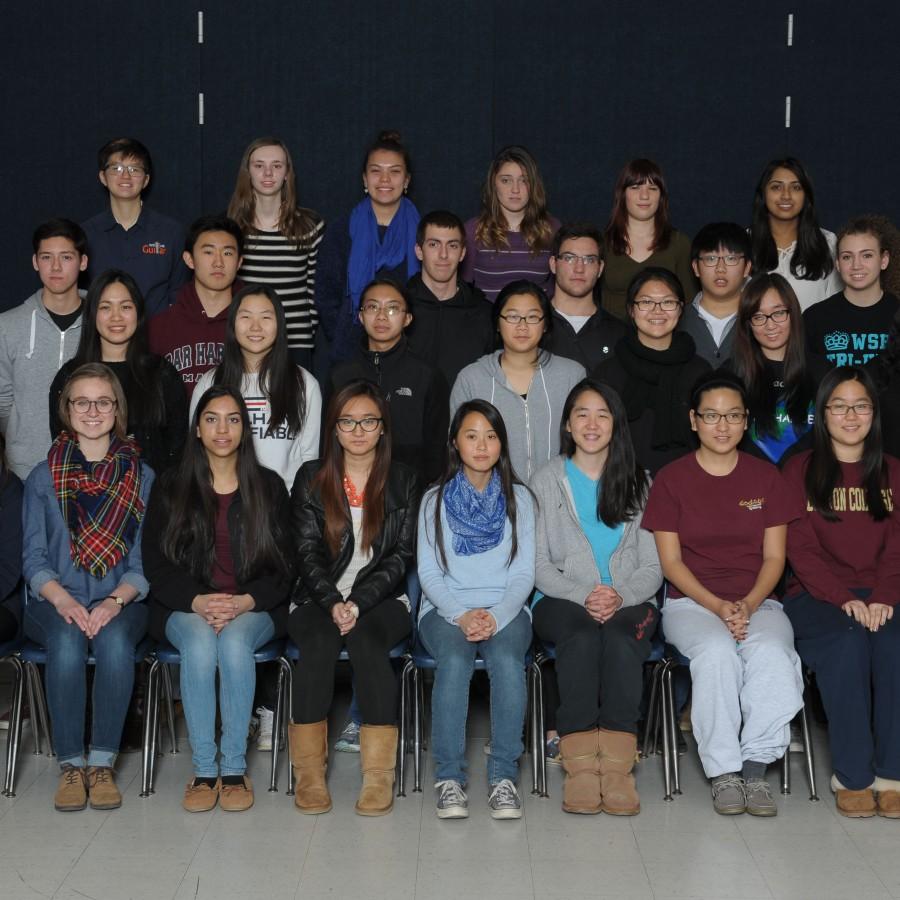‘Mandatory’ community service hours really aren’t
Photo courtesy of Lifetouch
The 2014-15 Key Club members pose for their picture for the yearbook. The Key Club is the largest, oldest and most widely known organization for high school students to provide service and give back to the local community. We’ve always been told that volunteering brings light to others and happiness to all. But why have we been told that it’s “required”?
March 29, 2016
We remember the beginning of my freshman year, when I we learned that we needed to get five hours of “service learning” done by December. Or that’s what we thought we heard, anyway.
Older—and wiser—siblings and friends, however, told us that we didn’t have to volunteer unless we wanted to. They were right: Not a single hour of volunteering was required for in high school. Sure, honor societies and other service organizations required that students “give back,” but if one wasn’t a “joiner,” one didn’t need to rack up all those hours tutoring and volunteering at the food bank.
We eventually had an Advisory lesson about “service learning,” but all the cheesy talk about “pursuing your passion” via community service didn’t sway some of us at all. So we just sat there with our classmates, all whose faces conveyed the urge to go to Spartan Time to get some homework done.
Some of us thought about community service again when we heard the then-Principal Mark Greenfelder stopped requiring the Capstone Project for seniors. Again, some of us were happy to hear that, because it meant more free time during senior year, but we were still left wondering about the school’s stance on community service. Was service learning still important, or was the Capstone Project just too cumbersome?
We’ve never received an answer, but apparently the administration still had some interest in us helping ourselves by helping one another. Soon we were sitting in Advisory again, listening to one of those schoolwide videos about x2vol, one of the school’s new programs.
Many other people seem not to care, because at the February NHS meeting the year after, 140 people still hadn’t registered on x2vol. Again, basically no one cared, and I started to wonder if the staff even had an opinion.
We wonder: Is this a matter of us not caring, or not having enough time, or of high school students experiencing “volunteerism overload”?
We’ve been told since we were tiny that it’s good for us to help other people. That volunteering reaps its own rewards. That it looks good on a college application.
But we also wonder: Why has the administration, over the years, pretended that volunteerism is required, when it’s really not?
Clear communication is a pivotal part of a good education, and helpful student-faculty relationships. A simple “community service is nice but not required,” would do. After all, how are students supposed to learn how to be a good citizen from half-hearted efforts and mixed messages?





